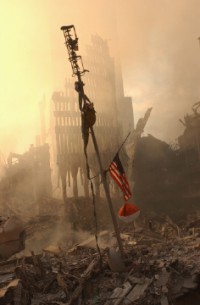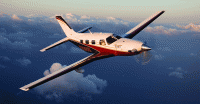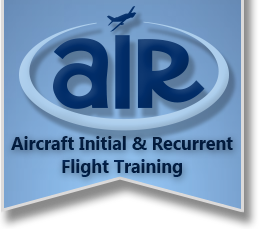AIR Flight Training focuses on detailed, scenario-based Piper PA46 training for Malibu, Mirage, Matrix, and Meridian pilots. We arm pilots with the knowledge and experience to react in any situation.
——————————————
On this 12th anniversary of the September 11th attacks on the United States, the morning sun woke me up to a cloudless sky dotted with air traffic and streaked with contrails. Instantly remembering the gravity of this day, I recalled the heart-wrenching images of billowing smoke, crumbling buildings, and grieving faces that are forever ingrained in our nation’s history. In minutes, our world was permanently changed.

As members of the aviation community, we have an undeniable and inherent connection to this tragedy. While some might not have suffered a direct loss, we still mourn for our lost brothers and sisters; while our freedom of flight was not dismantled, it was drastically transformed. In the days following the 2001 attacks, a new framework for the aviation industry was laid. I recently spent time with select general aviation professionals who witnessed that transformation, as they recalled their personal version of 9/11:
Bruce Hoover, former Director of Training at Parks College of St. Louis University
“I just pulled down the screen and we [the commercial ground school class] watched the television. There was no way we could learn. There was no way I could teach. I remember texting a friend of mine in San Francisco, and saying, ‘The world will never be the same.’ That was before the attacks had ended.”
“As the day wore on, you know they [the FAA] grounded everybody. Of course, I was scrambling to get all of our planes back, making sure they weren’t left out on a cross-country or something, because it was a pretty day. I remember that afternoon, and for the next two or three days, not seeing anything in the sky. There were no contrails, no noises or sounds. I was standing there looking [to the sky], at absolutely nothing.”
Stephen Belt, Aviation Science Department Chair, Parks College of St. Louis University
“When the first one hit, it was like ‘something bad has happened.’ The second one I thought, ‘holy cow, we just saw what bad things are happening to our country.’ When the third one hit, we thought ‘where does this stop? How long is this going to last?’ As day went on, it was just quiet.”
Bryce Knepp, Aviation Management and Flight Science student, St. Louis University
“ At the time, I was 10 years old. I haven’t forgotten the sights and sounds of that day. I vividly remember my day’s timeline of events.”
“Like many aviation professionals, I knew before that age that I wanted to fly. What I remember most about 9/11, is boldly professing to my parents that I would never let a tragedy like that happen again. To this day, the 9/11 anniversary always reminds me of my motivation to contribute to the aviation industry.”
While we each reflect and grieve in our own unique ways, we all share a common blessing: we are still able to fly planes and create contrails through the sky. Never Forget those who perished on September 11, and Always Remember the great freedom we have as members of the aviation community.

